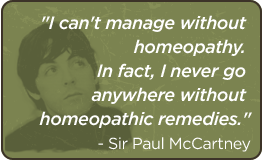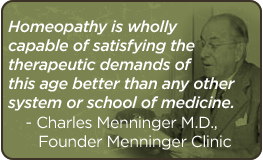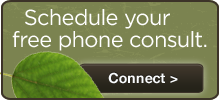How a Spiritually-Minded Clinical Psychologist with Training in Acupuncture and Homeopathy Helps Clients Heal and Grow
Dr. Prickett’s Mind-Body Approach to Psychotherapy and Counseling
By Jeffrey L. Prickett, Psy.D., A.P, CCH, RSHom(NA)
Choosing a psychotherapist can be a daunting task. There are many approaches, each with its focus, strengths, and weaknesses, and each person seeking psychological services has their own set of needs and hopes. Finding the right match can be a challenge. Over the years I have attempted to address the needs of my clients in a variety of ways, but certain core truths have endured that seem to contain the essence of what constitutes effective therapy.
The best therapist in the room is not the therapist: Probably the most important aspect of psychotherapy is the commitment of the client to address problems and make a change. Once that commitment is made, I am often pleasantly surprised at the ideas people come up with to bring about healing and change in their lives. There is a spark of light, an inner healer within each of us, and when this is accessed, even in a fleeting way, change is more likely to occur. It is the job of the therapist to facilitate the client’s awareness of that inner spark of light even in the midst of symptoms or crises in one’s life. In fact, the symptoms or life crisis often serves as a catalyst for accessing this inner change agent, something that does not usually happen during ordinary times. You might have heard that the Chinese symbol for crisis is a combination of the symbols for danger and opportunity. This serves to underscore that in every life challenge there is an opportunity for growth, and that is the call for both client and therapist.
Be proactive: Most clients understand that they have to be an active participant in making life changes, rather than a passive recipient of the therapist’s efforts. Unfortunately, the medical model of today is that we go to the physician, obtain a diagnosis, get a medication and we’re done; except for the side effects. It can sometimes be a challenge to overcome the view of health professional as the expert who will provide the “fix.” However, for psychotherapy to be successful, the client needs to be invested and actively work as co-therapist. This is precisely the course that I took many years ago when faced with significant physical illness. I researched, significantly changed my approach to eating, adopted new life habits, considered all alternatives, implemented many changes and worked hard at my recovery. I used my health practitioners as resources, listened to their advice and wasn’t afraid to go in another direction. Looking back, I’m especially grateful for not taking a conventional approach during those early, anxious days. If I had, I doubt that I would be able to write these words today.
There’s a body attached: Unfortunately, our medical system tends to be very reductionistic. We have specialists in digestion, joints, heart, mind, etc. But we are not a collection of separately acting systems that don’t influence each other. Physiological systems influence and are influenced by other systems. We are one body, and all systems are connected, directly or indirectly. Ignoring this does not help anyone. This is just one of the reasons that I integrate homeopathy and diet/nutrition in my practice. These disciplines can have a profound influence on our mental state. In one study, those adopting a Mediterranean diet showed significant improvement in depressive symptoms. Over the years, I have had multiple cases of improvement in anxiety, depression, hyperactivity and even psychosis with a correctly chosen homeopathic remedy. In other situations, using such mind-body techniques as hypnotherapy and meditation can have a marked impact on a variety of symptoms. Moreover, there is a solid body of research and practitioner experience that supports mindfulness, some nutritional interventions, and exercise to address mental-emotional symptoms. Lastly, certain environmental toxins can have a significant impact on our physical and emotional state. As a holistically trained therapist, guiding clients through a wise detox can pay big dividends in navigating the road to recovery.
There’s always a bigger picture: Carl Jung, a famous Swiss psychiatrist, said that all problems in living are essentially spiritual problems. This sounds lovely but how can that help deal with the problems of life; job stress, relationship discord, illness, parenting or financial pressures? Looking at the larger picture won’t necessarily change the situation, but it can change the person who is dealing with the situation. And that is the point. In nutrition, there are micronutrients and macronutrients. Micronutrients are vitamins, minerals, amino acids, etc. Macronutrients include proteins, fats, and carbohydrates. Macronutrients provide the fuel we need to function. We can take micronutrients like vitamins and minerals all day long, but we won’t be truly nourished without the macronutrients too. We need those macronutrients to sustain us and get us through the day. Likewise, it’s the “micro” events of our lives on which we mostly focus, both the good and the bad. But, if we only keep our focus on the circumstances of our life, we can’t rise above. However, if we feel a part of something greater, at the “macro” level, our chances of feeling emotionally nourished improve. This notion is supported by many studies that show those with a connection to some form of spirituality enjoy better emotional and physical health.
To sum it up: Each person has their own set of issues, traits, values and cultural background. Part of therapy involves understanding how the client perceives the world and perceives therapy, what works and what doesn’t in the mind of the client. An effective therapist has to be willing to learn from their clients and adjust therapy to fit their needs. A supervisor once advised that, when working with clients, ask yourself: What does this person need? This has become a primary question I employ as I seek to provide an environment in which “help” can take place. I want to encourage dialogue within and action between sessions. I often utilize homeopathy and nutrition to help the body-mind-spirit move towards greater balance. I sometimes use hypnotherapy, not to give direct suggestions, but to provide a place in which the client’s inner therapist can better do the work that is needed. Meditation can be a wonderful skill to learn. I attempt to pull back and, with the client, look at the larger picture and meaning of their situation and symptoms. It is my conviction that by taking a holistic approach, the needs of those who seek my services can be more effectively and quickly met. The essential goal of psychotherapy can be summarized with one word: freedom, freedom to experience more joy, have available greater or different choices, and freedom to live an abundant life.
For more information about homeopathy, Dr. Prickett, or the Holistic Health and Counseling Center, please see hhandcc. To schedule an appointment with Dr. Prickett, please call Sarah at 407.644.3593.






Follow Jeff On: